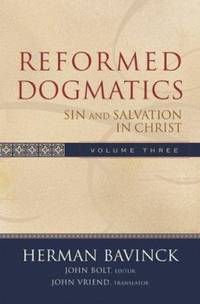
or more specifically, the relationship between the covenant of grace and election. Taken from Reformed Dogmatics vol. 3.
“The two are not so different that election is particular while the covenant of grace is universal” (229).
This at first seems to rebut the Schilderite claim that election and the covenant of grace is coterminous. But Bavinck’s language about the covenant of grace being universal is misleading. I’m not sure who in the Reformed camp would claim that. In the next sentence or two Bavinck says,
“But the two differ in that in election humans are strictly passive but in the covenant of grace they also play an active role.”
Note that Bavinck is not positing a division between the two in the above sentence. He simply notes that “the covenant of grace describes the road by which these elect people will attain their destiny. The covenant of grace is the channel by which the stream of election flows toward eternity.”
On the next page he says in the proclamation of the covenant of grace “there are actually no demands and conditions.”
“The Covenant of grace is unilateral: it proceeds from God; he has designed and defined it” (230). It can only be spoken of in a bilateral sense when it is “to be consciously and voluntarily accepted and kept by humans in the power of God.”
So far Schilder and Bavinck do not really agree. Bavinck ends with some exhortations which the later Schilder would probably endorse: “The covenant of grace does not deaden human beings or treat them as inanimate objects. On the contrary, it totally includes them with all their faculties and powers…It does not kill their will but frees them from sin.”
At the end of the chapter Bavinck affirms “the external and internal sides of it” (232).